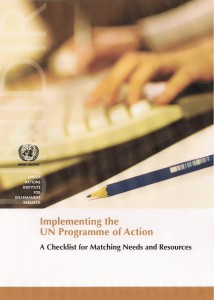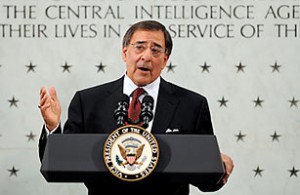
It is becoming increasingly clear that 1981 was a watershed year in the history of the American political economy. What checks and balances that remained broke down. Deregulation, for example, took off and the bomb of private debt exploded (recall the chart I circulated earlier). The trade deficit skyrocketed after 1981, and deindustrialization, which started in the late 1960s took off with a vengeance. The growth in real income stagnated and gap between the rich and poor began to expand rapidly.
The same collapse of political-eocnomic checks and balances occurred in what was already a poorly checked defense sector. During the first 30 years of the Cold War with the Soviet superpower, between 1950 and 1980, the defense budget never experienced more than three consecutive years of real growth (i.e., after removing the effects of inflation) before going into decline. During war and peace, the inflation adjusted budget oscillated around a relatively constant or slightly growing median value (if one believes the Pentagons estimates of inflation). That pattern changed radically with the ascent of Ronald Reagan to the presidency. The budget began to grow much more rapidly and the checking process weakened markedly during the 1980s and especially the mid 1990s, when the budget began increasing even though the superpower threat evaporated.
With the election of George Bush II in 2000, any remaining checks on budget growth came off (as can been seen in Slide 1 of my June 2002 statement to Congress, which can be downloaded here), and then, spurred on by the politics of fear which enveloped the US after 911, the checking process to ceased completely and the defense budgeting process spun out of control, as a part of it went to fight never ending guerrilla wars but most of it went to propping up a modernization program and force structure that is an outmoded legacy of the Cold War.
Now, if there is any truth to the attached AP report, Bush's insane madness has captured President Obama and he is power boosting the defense budget further, albeit with feeble promises of small declines in the future, which will no doubt be forgotten in the unfolding politics of the permanent war economy.
Chuck
AP Exclusive: Obama wants $33 billion more for war
By ANNE GEARAN and ANNE FLAHERTY
The Associated Press January 12, 2010
The Obama administration plans to ask Congress for an additional $33 billion to fight unpopular wars in Afghanistan and Iraq, on top of a record request for $708 billion for the Defense Department next year, The Associated Press has learned.




